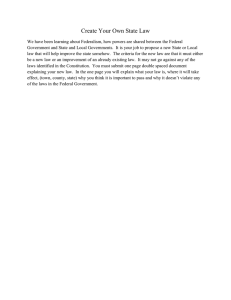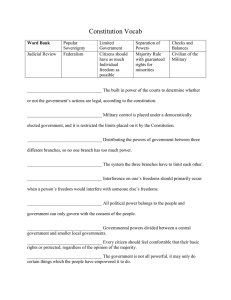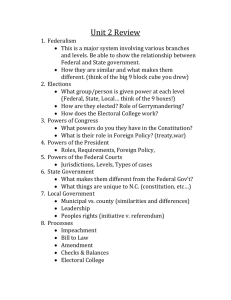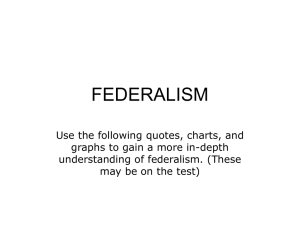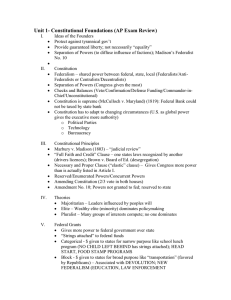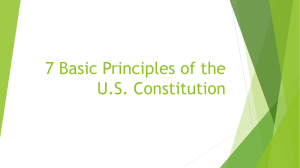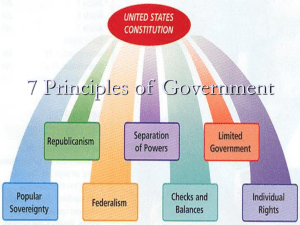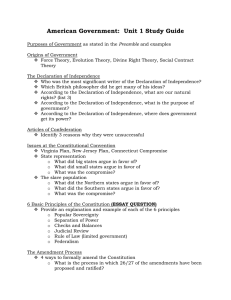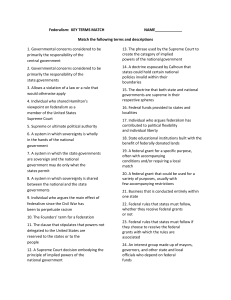Chapter 1: Theory of Modern Government (cont.)
advertisement
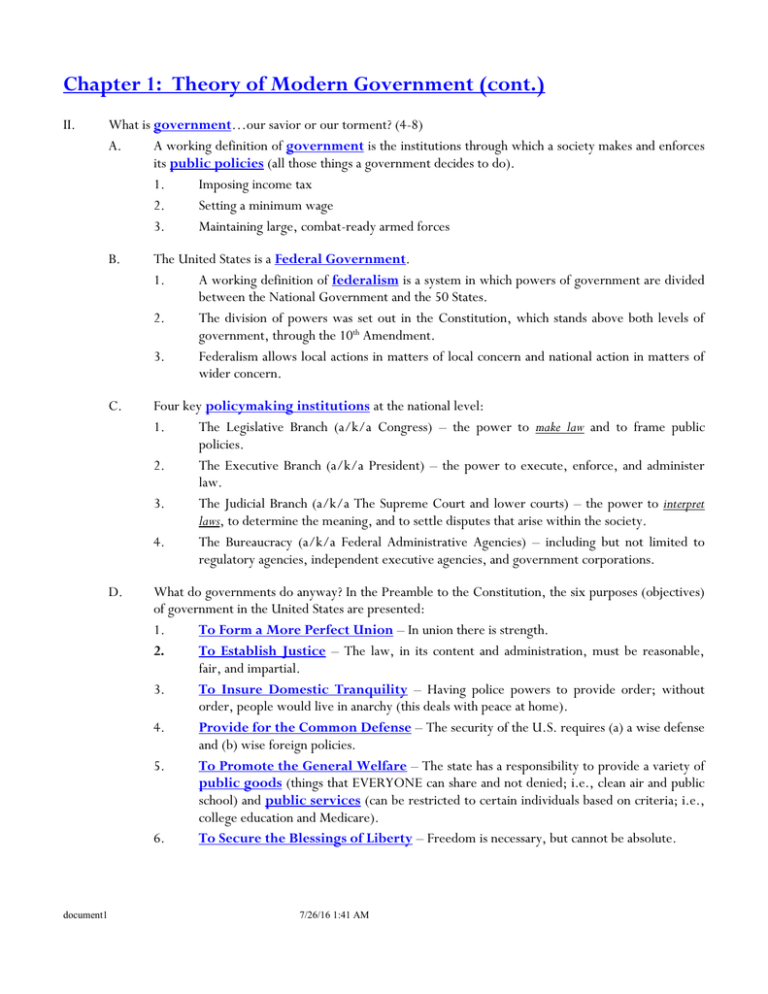
Chapter 1: Theory of Modern Government (cont.) II. document1 What is government…our savior or our torment? (4-8) A. A working definition of government is the institutions through which a society makes and enforces its public policies (all those things a government decides to do). 1. Imposing income tax 2. Setting a minimum wage 3. Maintaining large, combat-ready armed forces B. The United States is a Federal Government. 1. A working definition of federalism is a system in which powers of government are divided between the National Government and the 50 States. 2. The division of powers was set out in the Constitution, which stands above both levels of government, through the 10th Amendment. 3. Federalism allows local actions in matters of local concern and national action in matters of wider concern. C. Four key policymaking institutions at the national level: 1. The Legislative Branch (a/k/a Congress) – the power to make law and to frame public policies. 2. The Executive Branch (a/k/a President) – the power to execute, enforce, and administer law. 3. The Judicial Branch (a/k/a The Supreme Court and lower courts) – the power to interpret laws, to determine the meaning, and to settle disputes that arise within the society. 4. The Bureaucracy (a/k/a Federal Administrative Agencies) – including but not limited to regulatory agencies, independent executive agencies, and government corporations. D. What do governments do anyway? In the Preamble to the Constitution, the six purposes (objectives) of government in the United States are presented: 1. To Form a More Perfect Union – In union there is strength. 2. To Establish Justice – The law, in its content and administration, must be reasonable, fair, and impartial. 3. To Insure Domestic Tranquility – Having police powers to provide order; without order, people would live in anarchy (this deals with peace at home). 4. Provide for the Common Defense – The security of the U.S. requires (a) a wise defense and (b) wise foreign policies. 5. To Promote the General Welfare – The state has a responsibility to provide a variety of public goods (things that EVERYONE can share and not denied; i.e., clean air and public school) and public services (can be restricted to certain individuals based on criteria; i.e., college education and Medicare). 6. To Secure the Blessings of Liberty – Freedom is necessary, but cannot be absolute. 7/26/16 1:41 AM

